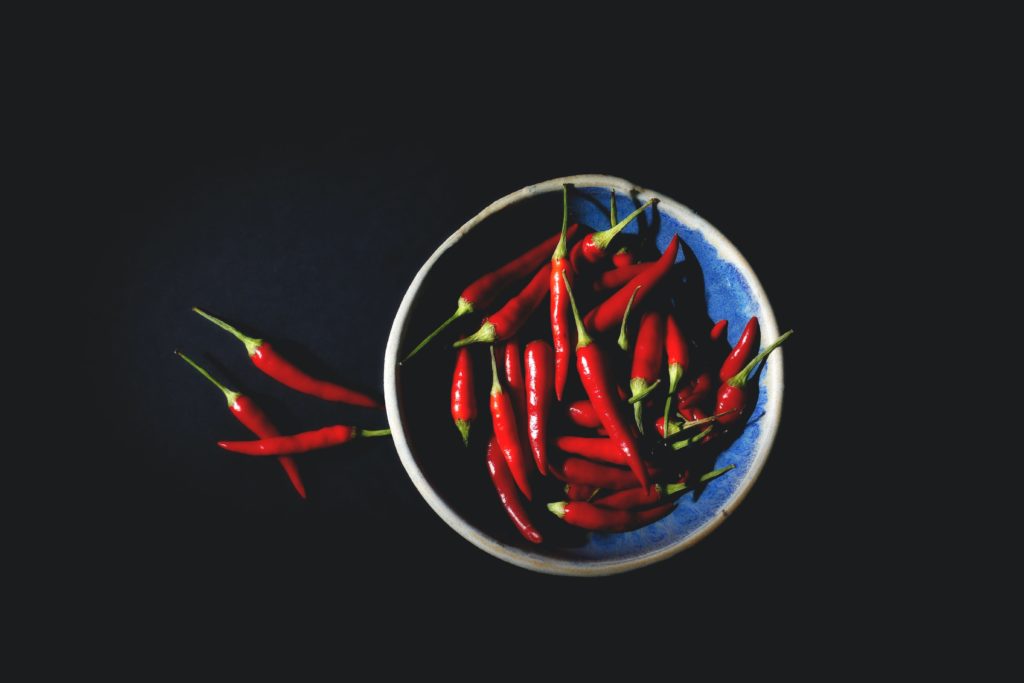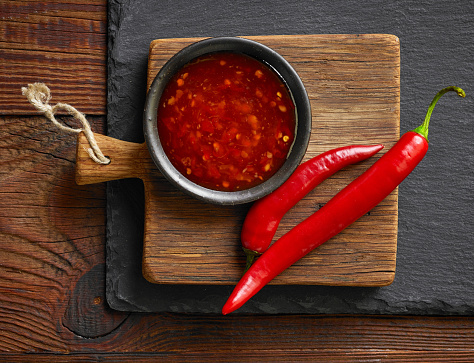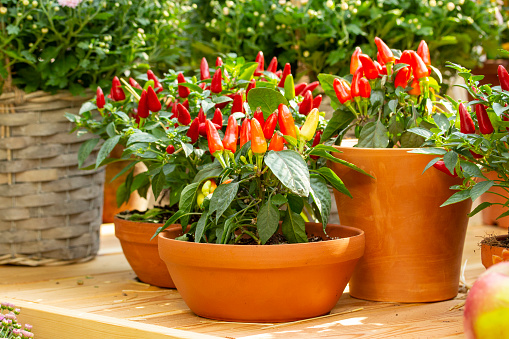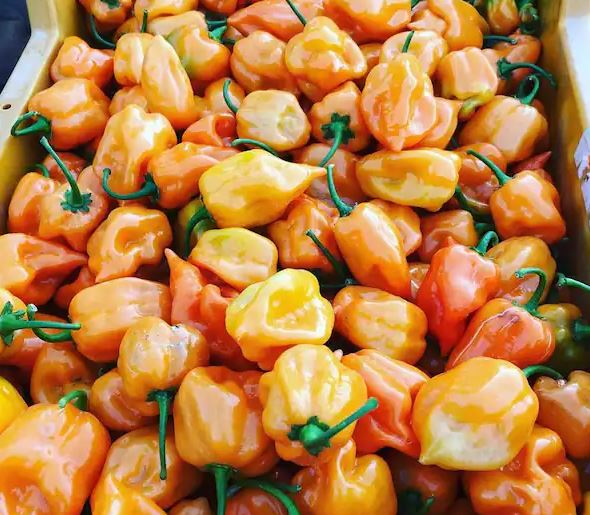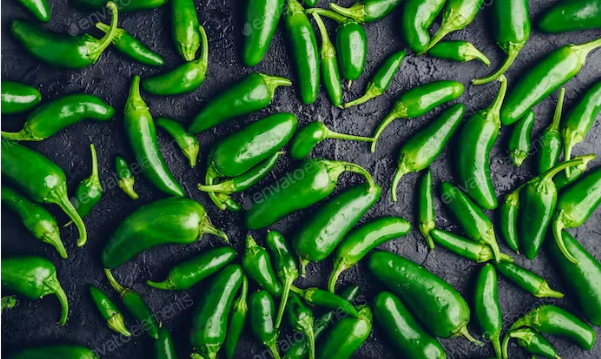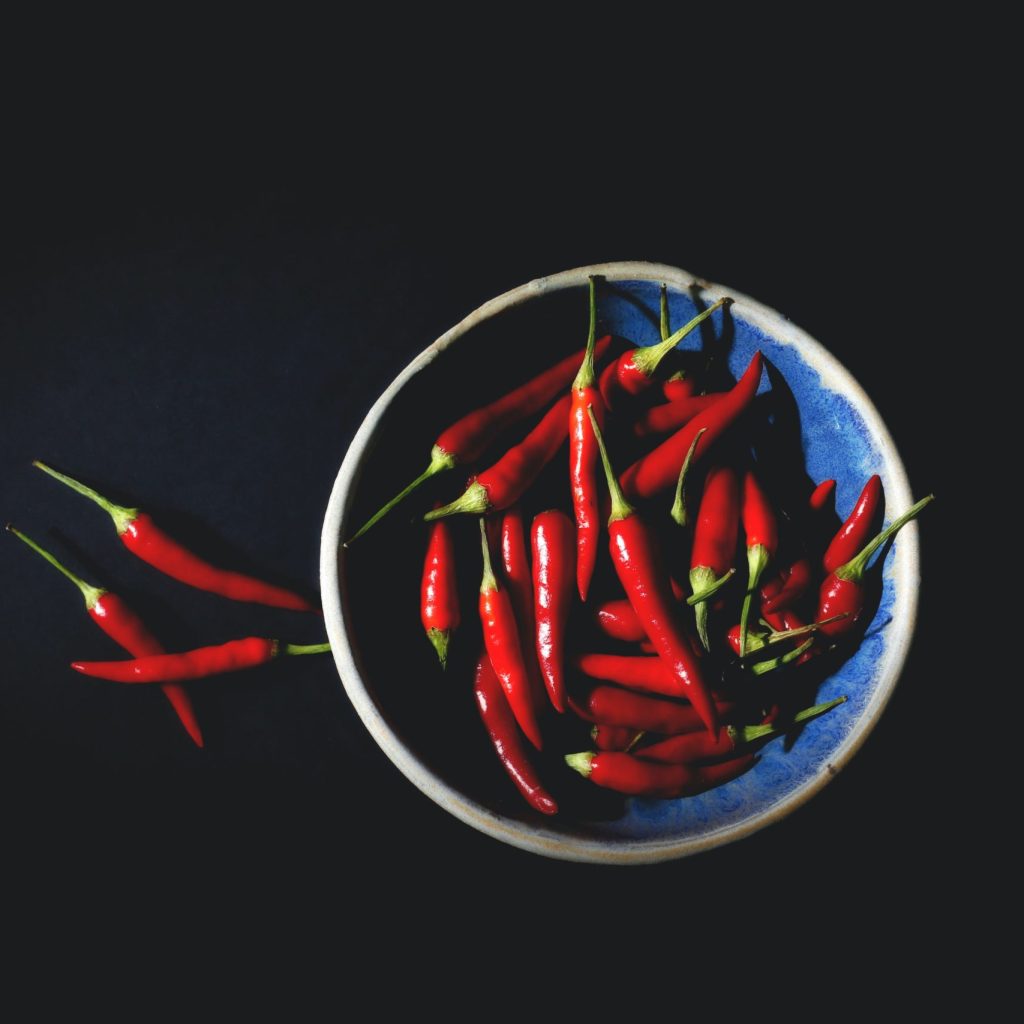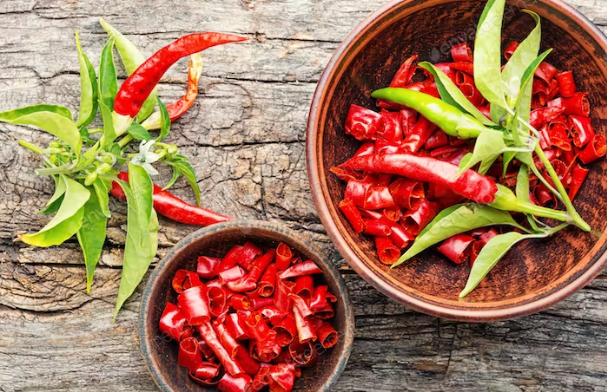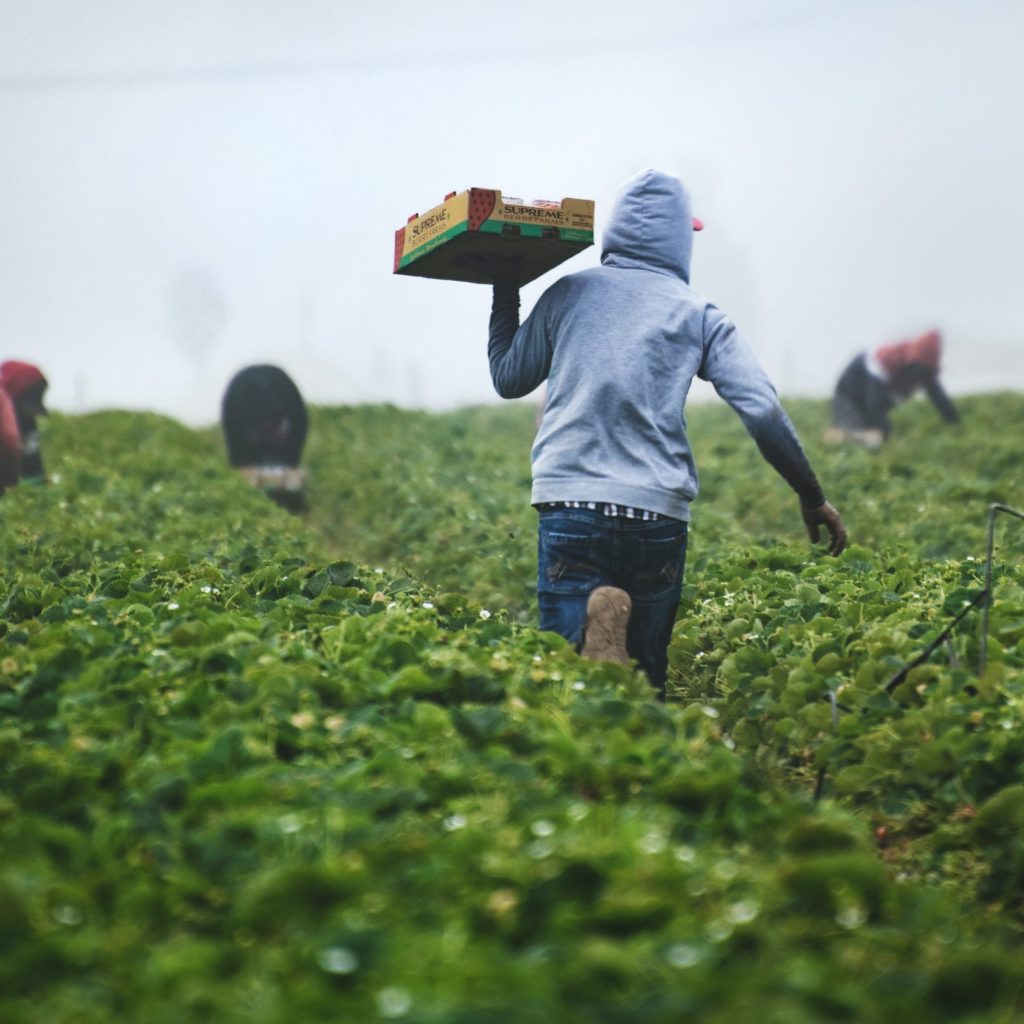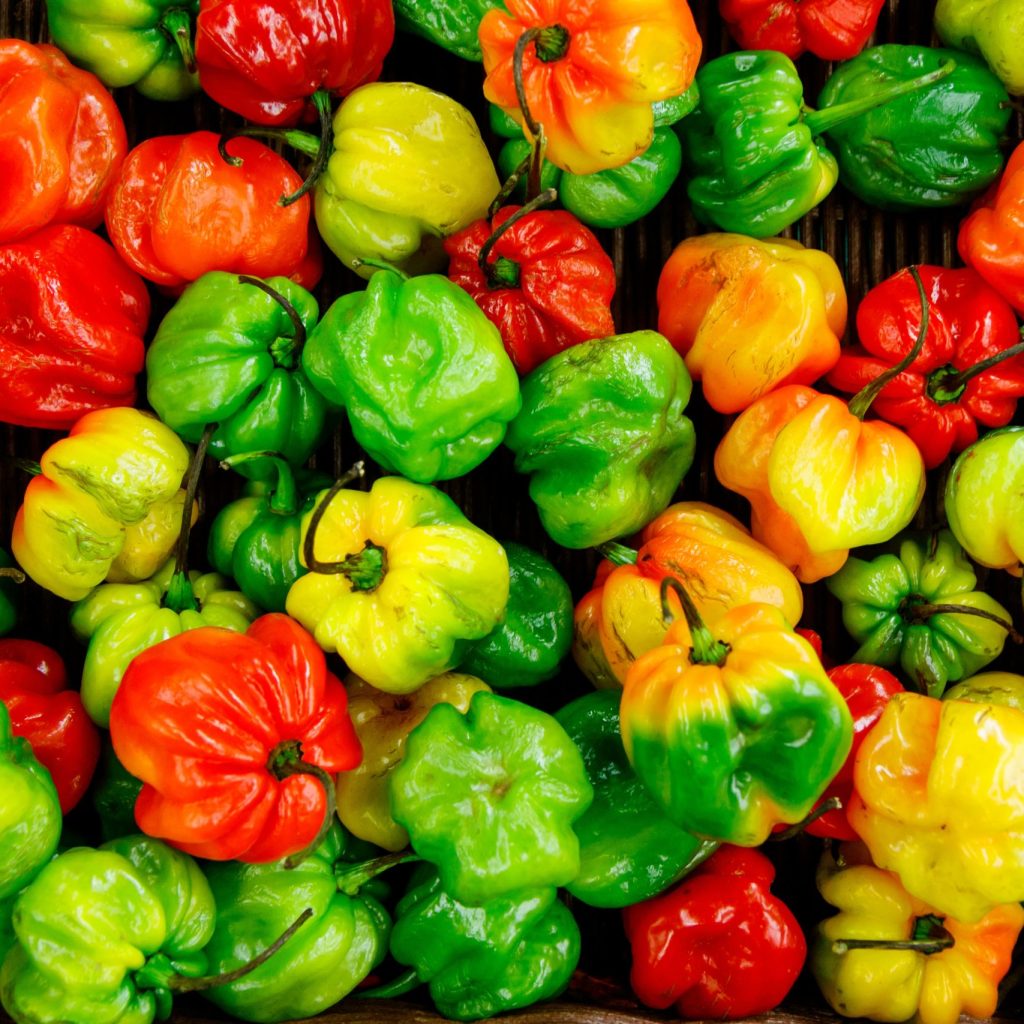
Source: google.com
Many diverse cuisines employ chilli peppers to enhance flavour or a little heat. It can be consumed raw or used to make sauces. Chilli peppers have many applications, so growing them in your backyard garden is a simple choice. However, you occasionally have too many peppers because it’s such a simple plant. Therefore, learning how to preserve peppers is crucial. You can eat peppers all year long if you preserve them.
CHILI CONSERVATION TECHNIQUES
To keep chillies fresh and hot, there are four unique ways to store them.
Chillies freeze well, keeping much of their flavour and intensity. The best way to store fleshier chillies like Scotch Bonnets and Habaneros is to freeze them. Chillies should be spread out on a baking sheet, so they don’t touch, frozen, and then placed in a sealed bag or container.
Drying your peppers
Chillies are most frequently preserved by drying them. Peppers can be dried in various ways, and wide pepper varieties lend themselves to particular drying techniques. According to experts, the waxier peppers respond best to the drying procedure, although practically any pepper will work if done correctly.
Using a dehydrator to dry peppers is the simplest method. If you have peppers that are more meaty, like habaneros, use this. If you don’t have a dehydrator, another alternative for drying peppers is to spread them out in the sun, providing the peppers with the right amount of warmth and airflow to dry to the right consistency. Insufficient ventilation may cause your peppers to become overly moist, allowing mould to grow and destroying your batch. Too much heat will make the pepper too brittle, making it difficult to deal with.
To best prepare, your chilli peppers, rinse them in salt water to avoid mould growth and then dry them using your preferred technique. Using a coffee grinder, the easiest way to store dried chillies is in an airtight container, either whole or ground into a chilli pepper.
Freezing your vegetables
Another foolproof method to keep chillies fresh and flavorful is to freeze them. This is a method for preserving an abundance of peppers without additional preservation techniques. The most straightforward technique is to wash your peppers in cool water, carefully pat them dry with a cloth, and then place them in a Ziploc bag or other freezer-safe container. Remember to freeze them before they become overripe.
Slice, dice, and store peppers in any shapes or sizes you like for a more inventive approach to freezing them. Peppers typically lose their shape when frozen, so you could want to prepare them in the desired size.
If you don’t have the time or room to produce your chilli peppers, you can freeze store-bought ones. Keep in mind that mould can appear quickly on chilli peppers. When you buy and freeze chilli peppers, chop them up and place them in freezer-safe containers. Avoid putting too many frozen items in a package and letting them spoil. That would render the preservation technique useless. Please freeze them in tiny containers, then remove them as required.
Choosing Your Chilies
Another technique for preserving your chilli peppers is pickling. You’ve seen the colourful, elegantly filled jars. Some people consider placing the properly pickled peppers in those jars an artistic endeavour. But underneath all of this pickled mayhem comes a method.
To start, be creative when choosing your ingredients. The best-pickled peppers are flavorful and intense. You can produce various flavours by incorporating a small amount of spice or a different vinegar. Making your everyday chilli pepper enjoyable and one-of-a-kind can be accomplished by blending various batches of your pickled recipe.
The simplest method for pickling peppers is washing them in salty water. After that, you’ll put your peppers away while you boil some white wine with a combination of sugar, cider vinegar, and vinegar. By adding various components that suit your palate, you can change the flavour of your pickling juice. Make holes in the tops of the chillies while your “liquid” is boiling so the flavour of your pepper will be even more robust.
The jars are a crucial component in the pickling process. Wait until the mixture has cooled before capping the jars after adding the solution and peppers. To ensure that your peppers pickle correctly, this is important. Before opening and consuming the sealed jars, let them sit in your refrigerator for at least two weeks after cooling.
QUICK-TIME PRESERVATION
While the techniques above are great for long-term chilli pepper storage, there are a few others that can assist keep your peppers from going wrong for a week or two.
Naturally, peppers can be placed in the refrigerator and last just as long as other fruits and vegetables. This will extend your chilli peppers’ time before going bad by roughly a week.
Olive oil is another option for preserving chilli peppers; it will keep them fresh for a week or two. To use this technique, clean and dry your peppers before roasting them on the grill or under the broiler until the skins are darkened. Don’t overcook them, please. You will next peel them and slice them into strips. Then you will place them in a new, airtight container. Olive oil your peppers, then cover them and secure the lid. After that, you can store them in the refrigerator and enjoy tasty peppers for a few weeks.
You will be able to enjoy the flavour and spiciness of chilli peppers for weeks or months, whichever technique you select. Consider all the meals you could season with this savoury harvest.
Conclusion
The refrigerator is the ideal place to keep chilli peppers for long periods. This will guarantee their long-term freshness and crispness.
FAQs
Do chillies keep food fresh?
Abstract. Chilli peppers are utilised in meals worldwide because of their hot flavour and scent and to delay food spoiling.
Why are peppers dried before being stored?
Chillies can be kept for a long time by drying them. Since the fruits’ thin walls dehydrate quickly and easily, there will always be a supply of crinkle-dry chillies available for consumption until the following year’s crop. Both fresh and dried chillies can be used in a variety of dishes.
Should I freeze or dry my peppers?
The best way to store fleshier chillies like Scotch Bonnets and Habaneros is to freeze them. Chillies should be spread out on a baking sheet, so they don’t touch, frozen, and then placed in a sealed bag or container.

